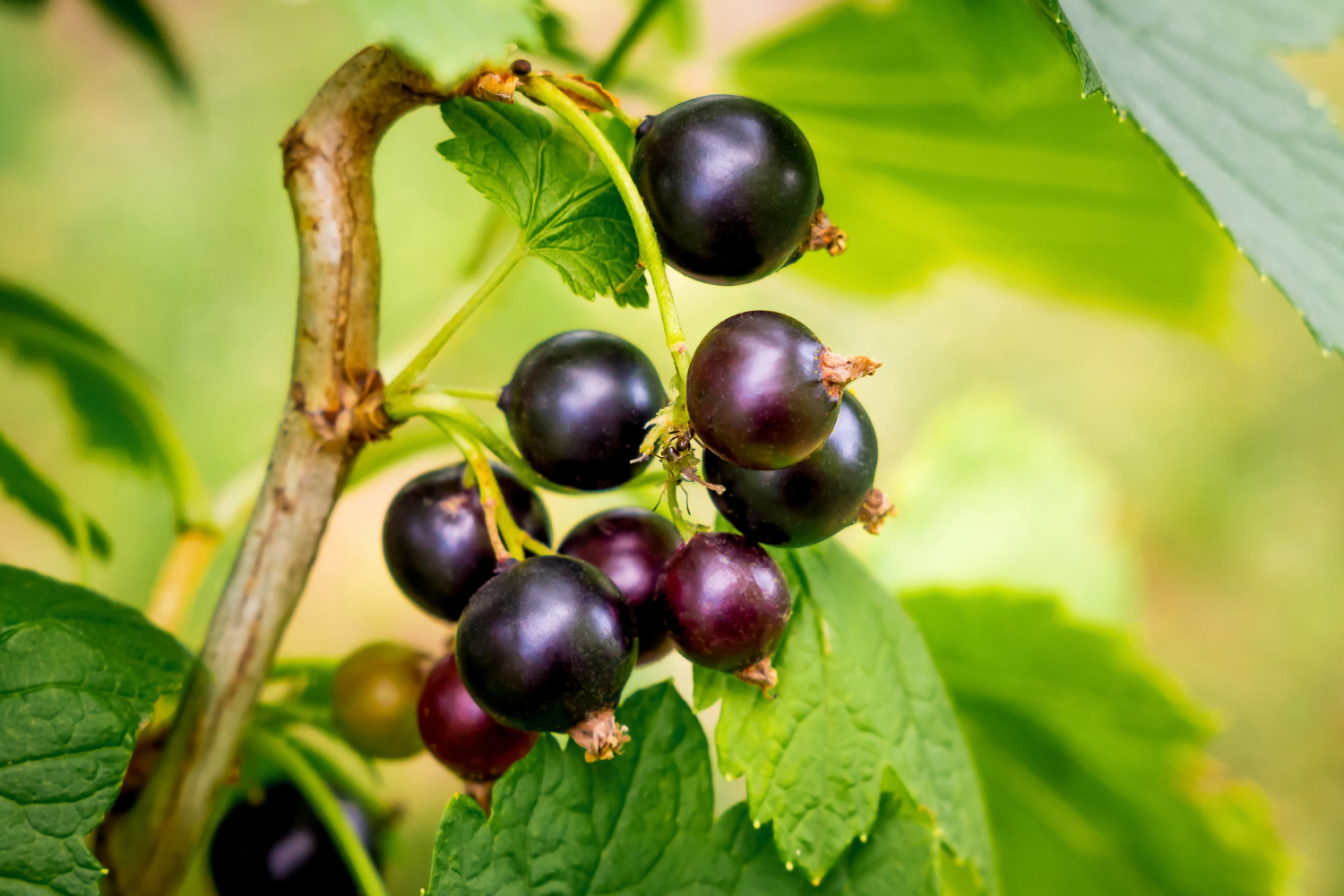Blackcurrant is a fruit that resembles a grape—only that it has a round shape compared to an actual grape. Cultivating blackcurrant in the United States is deemed illegal. It is known to spread a fungus that disrupts its timber industry. But for international fruit eaters outside the US, this fruit claimed popularity due to its tart flavor and multiple benefits for the body.
Using the botanical approach to define the fruit’s classification—we can infer if blackcurrant and grapes reside in the same fruit category. Grapes are considered a true berry since it botanically fits the description of the said fruit: it grew from a flower-bearing a single ovary, and it has a separate skin. Other fruits that are considered under actual berries include bananas, avocados, and elderberry.
In the case of blackcurrant, this fruit is considered eudicots, a plant clade that bears fruit from a flower with two ovaries. This means that blackcurrant falls under aggregate fruit, while grape falls under simple fruit. Blackcurrant may not be considered a grape, but these fruits should be regarded as part of a balanced diet. It provides essential minerals, vitamins, and antioxidants to complement your dishes while keeping you healthy.
Is Blackcurrant and Grape Same?
As mentioned earlier, blackcurrants and grapes are two different fruits coming from two additional classifications. Grapes are considered a true berry, while blackcurrant falls under aggregate fruits. The main reason why people mistakenly believe blackcurrant and grapes as the same fruits is because of their similar dark violet color.
Blackcurrants also have a similar flavor profile to grapes. Still, blackcurrant has a deeper flavor with flowery and earthy tones in between. That is why blackcurrant works well with savory meals like wild games, pork roast, poultry, and beef. Grapes complements the flavor of delectable dishes in the form of wine, which is created through the fermentation process of the said fruit.
With this considered, blackcurrants and grapes are not the same fruit. However, you may consider the following to decide what fruit you will consider to include in your meal:
- Blackcurrant is a powerhouse fruit containing a high concentration of antioxidants, anthocyanins, vitamin C, gamma-linolenic acid, and polyphenolic substances that improve the overall condition of the eyes, stomach, and heart.
- Grapes are a primary source of vitamin C and K. These vitamins are responsible for improving the body’s blood clotting capacity and improving bones’ strength.
- The antioxidants found in both fruits prevent chronic diseases like cancer, diabetes, and heart illness. It can also help produce anthocyanins—which are scientifically proven to improve one’s mental condition.
- Blackcurrant essences contain high GLA concentration, which is known to reduce pain, soreness, stiffness, and damage to your muscle and joints. The compounds found on grapes are known to reduce the body’s cholesterol levels by lowering your body’s capacity to consume lousy cholesterol.
What’s the Difference Between a Blackcurrant and a Grape?
While grapes have wider popularity compared to blackcurrant, you can still consider consuming these two fruits. Since blackcurrants are also dried in raisins, people are starting to think that these fruits are of the same variant. Others believe that blackcurrant is a variant of grape.
In reality, blackcurrants and grapes are coming from different fruit families. Aside from that noticeable difference, other facts separate blackcurrant from a grape. Listed below are some of the visible differences of these fruits:
- Blackcurrants and grapes have different sizes—with blackcurrant having a smaller size. A single fruit of blackcurrant only weighs two grams, while a single grape can weigh 8-10 grams.
- Blackcurrant has a darker gloss than grapes. On the other hand, Grapes produce a frost-like oil produced from the grape’s skin—leaving a white frost on the fruit’s surface.
- Blackcurrant can thrive in areas with high sunlight, and it can resist colder temperatures. This fruit can be cultivated in the form of strips, cuttings, or seeds. In the case of grapes, each variety requires a specific soil type—which creates an abundance of grapes. A slight change in soil, temperature and nutrition will affect its flavor during the grape’s growth.
- Blackcurrant is infamously known to treat gout, anemia, edema, rheumatism, oral diseases, arthritis, cough, and many others. This fruit is extracted in juice or essence, later mixed with pharmaceutical products like syrup, capsules, and tablets. Grapes are known to provide essential acids like oxalic acid, malic acid, tartaric acid, and citric acid.
What Is Blackcurrant Taste Like?
While blackcurrant is claimed to have the same flavor as grapes, it actually has an intricate flavor. The taste of this fruit changes when it is consumed raw or dried in the form of raisin. When eaten fresh, blackcurrant can have a flavor combination of raspberry, dark berry, and grapes.
If you sniff a bunch of blackcurrants before tasting it, you can observe the similar scent of the grape—but it has other tones to it. Blackcurrant’s aroma can have a combination of solid grape weaved with fresh cherries. It can appear acidic and, when rubbed within the fingers, can release sweet-tart notes of wildflower and vanilla. The blackcurrant’s earthiness can be amplified, most especially when you are smelling the dried variant.
Blackcurrant’s flavor can be best described as a fusion of passion fruit with a slight tinge of dark berry and raspberry—with distinct earthy tones. It may also have a deep grape flavor in the end, most especially if you eat it with skin intact. The seed of this fruit can be chewy, and you can eat that together with the blackcurrant.
Another remarkable insight about blackcurrant is its moisture content. Despite its small size, blackcurrant can be surprisingly moist and juicy—compared to a grape that can be a bit pulpy if taken in large amounts. Drying blackcurrant in the form of raisins gives a much complex flavor profile on the said fruit—and it can be as chewy as dried dates.

